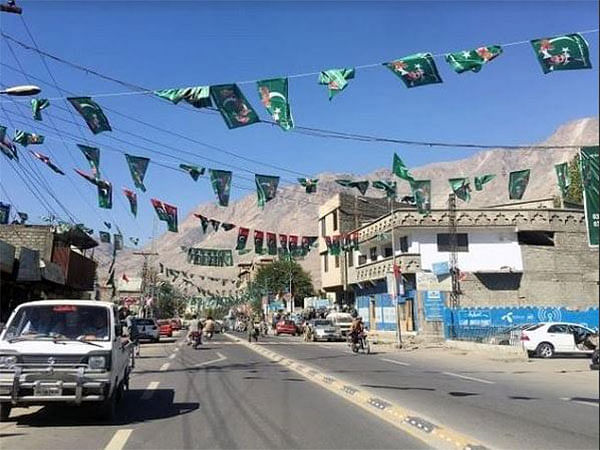Skardu [PoGB], November 3 (ANI): The Gemstone Core Committee of Pakistan-occupied Gilgit-Baltistan (PoGB) has expressed serious concerns about the challenges facing the local community, as reported by the Pamir Times.
The committee alleged that the practices of the Gilgit-Baltistan Mineral Department are harming not only local miners and artisans but also the overall economic development of the region. Members criticised the department for operating illegally and fostering corruption since its inception.
One member stated, “We urge the administration to permanently close this Mineral Department. Its actions have pushed the gemstone sector to the brink of destruction through illegal activities and restrictions, enriching a few individuals in Islamabad while neglecting the needs of the PoGB people who depend on these resources for their livelihoods. Any government institution should benefit the people, yet we feel looted.”
They emphasised the long-standing reliance of the region’s residents on the gemstone industry, insisting that all resources belong to the people of Gilgit.
“There is no factory in this area, and the administration has done nothing to support the people of PoGB. The land available for farming is minimal, and the government fails to provide suitable employment,” the member noted.
The committee called for an immediate end to leasing practices that allow outsiders to exploit local resources. Furthermore, they announced that if their demands are not addressed, they will resort to street protests. They also requested representation in any future discussions regarding gemstone regulations. A committee member criticised the current tax policy on mineral stones, labelling it as unjust and detrimental to local interests.
Earlier reports indicate that various associations in Gilgit-Baltistan frequently mobilise to protest against governance issues, economic hardships, and demands for regional autonomy. These protests reflect the region’s ongoing struggle for better governance, equitable treatment, and improved living conditions, as local groups address grievances related to resource management, regulatory challenges, political representation, infrastructure development, and environmental concerns. (ANI)
This report is auto-generated from ANI news service. ThePrint holds no responsibility for its content.



